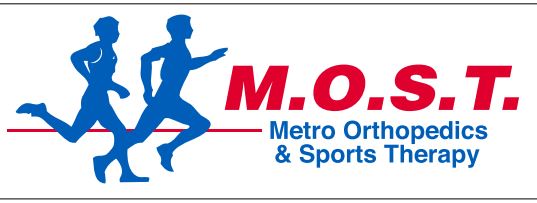Over 54 million American adults have osteoporosis or low bone density. Weak bones are a significant risk factor for bone fractures that can lead to disability and a severely decreased quality of life.
Up to 90% of your bone density forms before you turn 20. Having healthy diet and exercise habits during childhood is critical to protecting your bone health throughout life. But now that you’re an adult, what can you do to strengthen your bones?
The physicians at M.O.S.T. Metro Orthopedics & Sports Therapy in Potomac, Maryland, have extensive experience and knowledge about protecting your musculoskeletal system and preventing fractures and other bone problems that may end up needing orthopedic surgery.
Our team recommends taking five steps to improve and protect your bone health.
1. Eat a healthy diet
Your diet should include sufficient calcium and vitamin D.
Calcium is critical to bone health, as well as other body functions, from muscle contraction to your heartbeat. Your body needs vitamin D to absorb and use calcium correctly. Dairy products are a great source of calcium and are often fortified with vitamin D.
2. Maintain a healthy weight
Maintaining a healthy body weight is essential to many aspects of your overall health and well-being. In addition to reducing the stress and pressure on your bones, it helps you avoid many diseases, including osteoporosis and arthritis.
Following a nutrient-rich diet with the correct amount of calories your body needs and getting regular exercise can help you maintain a healthy body weight and enhance other aspects of your wellness.
3. Avoid unhealthy habits
Smoking and excessive alcohol consumption are terrible for your bone health and your overall health. These unhealthy habits introduce carcinogens and toxins into your body that disrupt your ability to generate new cells, which can accelerate bone loss and the onset of osteoporosis.
4. Include weight-bearing exercise
Weight-bearing exercises like walking, dancing, jogging, and resistance training help keep your bones strong. The stress of these activities stimulates calcium deposits and triggers your body’s cell generation process, resulting in stronger, denser bones.
5. Review your risks
Talk to your doctor about your history, lifestyle, and concerns. Some medications, such as steroids, and medical conditions, including hormonal imbalances and irritable bowel syndrome, can increase your risk of bone loss and osteoporosis.
Identifying your risks early allows you to take action to mitigate them and protect your bones.
What if you already have osteoporosis?
If you already have osteoporosis, you should follow the advice above and talk to the team at M.O.S.T. Metro Orthopedics & Sports Therapy about other treatments to protect your bones.
For example, menopausal women experiencing bone loss may benefit from estrogen replacement therapy to support bone health.
Your physician may prescribe medications to protect your bones or suggest physical therapy to strengthen your muscles and improve your balance, reducing your risk of falling and fracturing a bone.
Call M.O.S.T. Metro Orthopedics & Sports Therapy today or make an appointment online if you have concerns about your bone health or want to take action now to enhance your bone health now and in the future.






